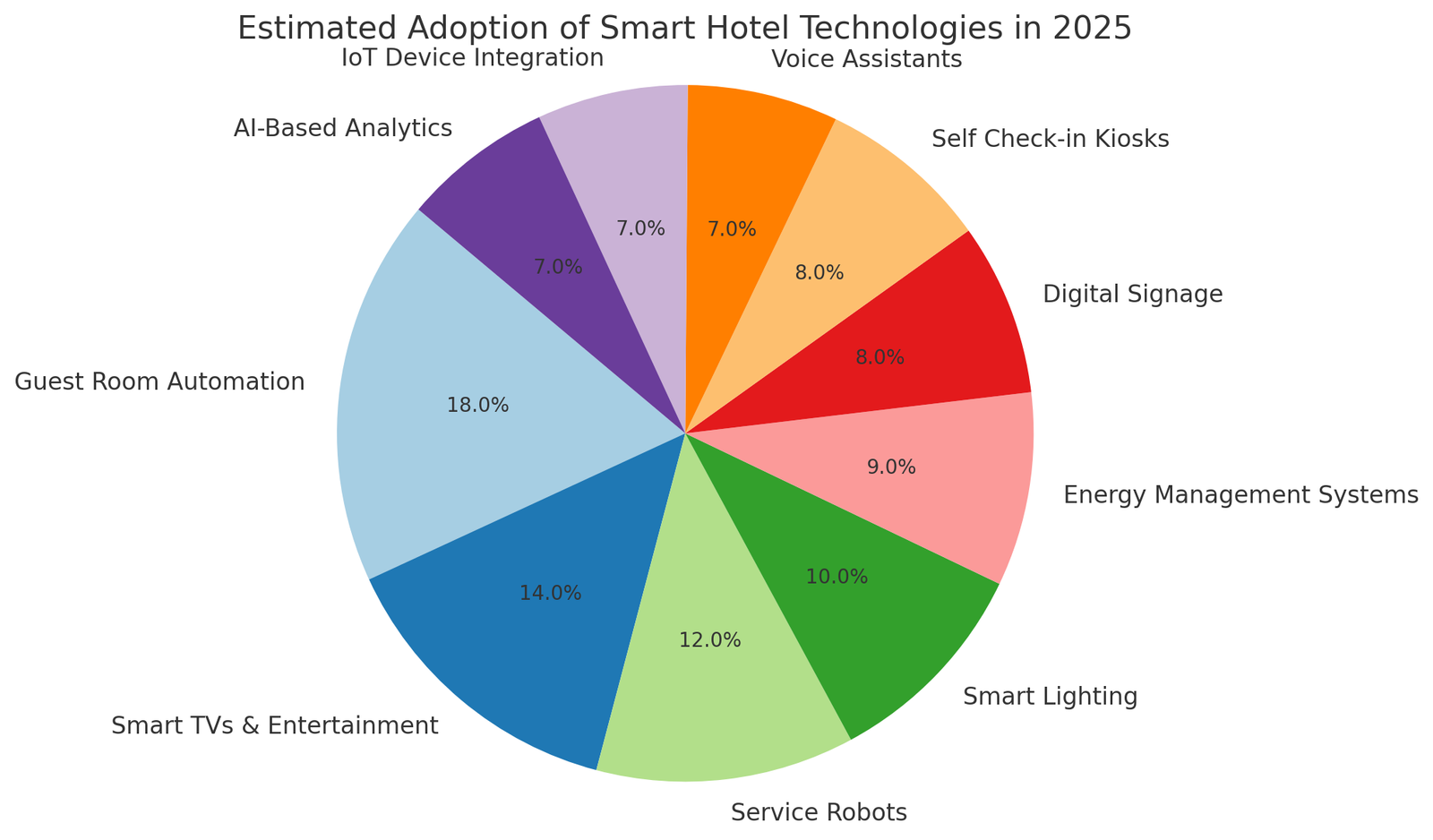Discover the top 10 smart hotel technologies that are revolutionizing the guest experience in 2025. From automation to AI-driven insights, see what’s reshaping hospitality.
The hospitality industry is undergoing a digital transformation. In 2025, guest expectations are higher than ever — demanding personalization, convenience, and seamless service. Smart hotel technologies are answering that call. This article explores the top 10 innovations reshaping how hotels operate and how guests interact with spaces and services.
Guest Room Automation integrates environmental controls like lighting, curtains, air conditioning, and entertainment systems into one unified system — often operated by a touch panel, smartphone, or even voice.
It offers guests full control over their room environment, increasing comfort and satisfaction. Automation also reduces energy consumption through occupancy detection and smart thermostats.
| Feature | Benefit |
|---|---|
| Smart AC & Lighting | Improved comfort, energy saving |
| Curtain Control | Convenience and luxury |
| Scene Modes | Personalized experiences |
Gone are the days of cable TV. Hotels now deploy smart TVs with built-in casting, personalized welcome screens, and app integrations like Netflix, YouTube, or Spotify.
It turns the room into an extension of the guest's digital lifestyle. Personalization increases dwell time and guest satisfaction.
Service robots handle delivery of amenities, room service, or even guide guests in the lobby. These robots integrate with elevators and call systems.
They reduce wait times, improve operational efficiency, and wow guests with futuristic convenience.
Lighting systems that adjust based on natural daylight, occupancy, or time of day. Controlled via sensors or apps.
Improves ambiance and reduces electricity costs. Guests can enjoy mood lighting and hotels benefit from sustainability.
Systems that monitor, control, and optimize energy usage throughout the hotel.
Hotels can reduce energy costs by up to 20%. Combined with room automation, it enhances green credentials.
| Energy-Saving Technology | Average Cost Reduction |
|---|---|
| Smart Thermostats | 15% |
| Occupancy Sensors | 10–20% |
| Central EMS Dashboard | 12% |
Touchscreens and digital screens used for lobby directions, event schedules, promotions, and real-time info.
Enhances guest navigation and engagement. Easy to update and visually impressive.
Automated kiosks in lobbies for quick check-in and key card issuance. Often integrated with facial recognition or QR codes.
Reduces queues, cuts staffing needs, and enhances privacy and efficiency.
Smart speakers like Amazon Alexa or Google Assistant customized for hotel environments.
Allows guests to control lights, order room service, or request housekeeping — hands-free.
Connecting all devices — HVAC, locks, TVs, sensors — to a centralized Internet of Things (IoT) platform.
Enables predictive maintenance, data-driven personalization, and centralized management.
AI systems track guest behavior, preferences, and feedback to improve service quality.
Hotels can proactively tailor offers, predict demand, and boost revenue through intelligent insights.
Here’s a visual breakdown of estimated adoption of these technologies in modern hotels in 2025:

The transformation of hospitality through smart technology is not just a trend — it’s a new baseline. From energy savings to personalization, each of these innovations is centered around enhancing guest satisfaction while improving operational efficiency. The hotels that adapt early will be the ones that lead the market in both ratings and revenue.